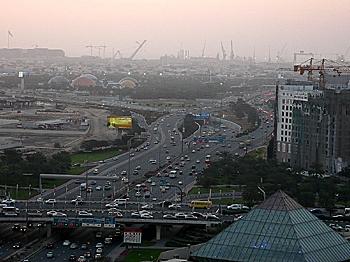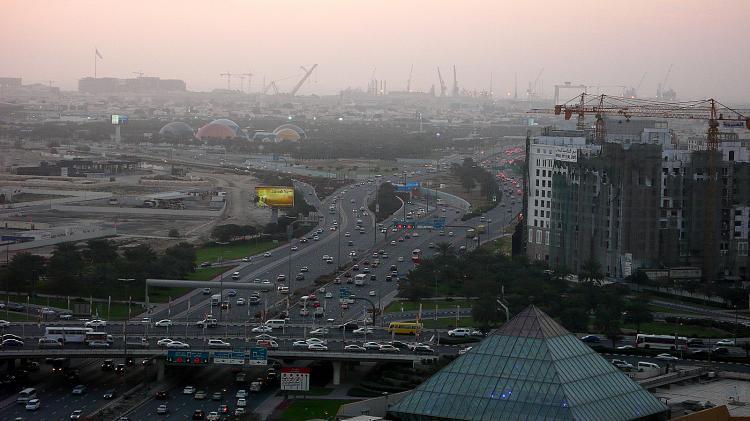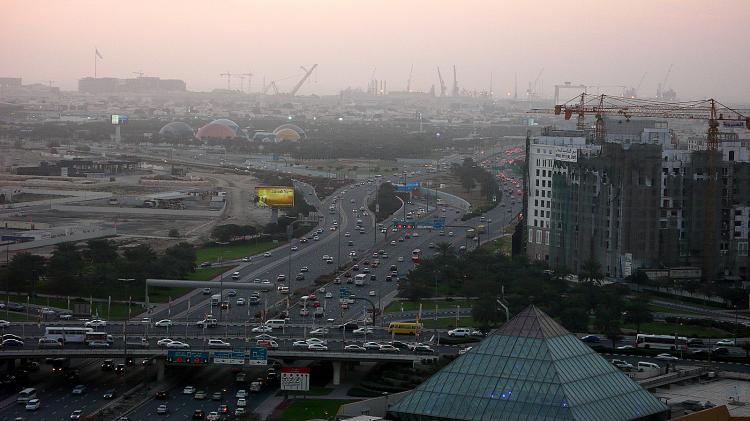Dubai’s New Metro May Herald Change in Segregated City
Gazing out of the window of a carriage on Dubai’s new metro line, Humaid Al Marri has high hopes for his native city.

Dubai, known for its heavy traffic, compounded by constant detours from construction projects, has just opened its first metro. Cindy Drukier/The Epoch Times
|Updated:





